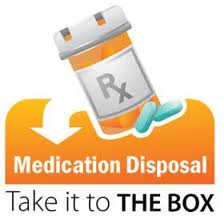It’s no trick or treat: Kids get high on drugs, not sugar
 It’s sad but true: There’s a very good chance that at least one young person you know is abusing prescription and/or over-the-counter drugs to get high.
It’s sad but true: There’s a very good chance that at least one young person you know is abusing prescription and/or over-the-counter drugs to get high.
According to the most recent National Survey on Drug Use and Health (September 2010), teens and young adults abuse prescription drugs more than any illicit drug except marijuana, and the main reason is because they are readily available.Many teens get high on drugs that they obtain from friends, who in turn are getting these drugs by going through their parents’ or grandparents’ medicine cabinets. What’s even scarier: Kids as young as 12 and 13 years old report that prescription drugs are their drugs of choice! So much for the good old-fashion sugar high from hoarding all the Halloween candy.
What kind of prescription drugs are teens abusing?
1. Painkillers
Painkillers are drugs commonly prescribed for pain and include: Vicodin, Tylenol with Codeine, OxyContin, and Percocet.
2. Depressants
Depressants (aka downers, sedatives, or tranquilizers) are prescribed to treat a variety of health conditions including anxiety and panic attacks, tension, severe stress reactions, and sleep disorders. They include: Klonopin, Nembutal, Soma, Ambien, Valium, and Xanax.
3. Stimulants
Stimulants, or uppers, are usually prescribed for attention deficit/hyperactivity disorder (ADHD), but they are also used to treat other conditions such as asthma, respiratory problems, obesity, and sleep disorders. Stimulants include Concerta, Dexedrine, and Ritalin.
What can I do to protect the young people in my life?
In addition to talking to children or grandchildren about the dangers of abusing prescription and OTC drugs, you can take the following steps to prevent these dangerous substances from winding up in the wrong hands:
1. Take a survey of all the medications in your home. What drugs do you have? Where are they kept? Would you know if any were missing?
2. Safeguard all drugs at home by keeping them locked out of reach when guests, baby sitters, or pet sitters are in the house. (The child-proof caps are not going to cut it!)
3. Ask friends and family to safeguard their prescription drugs, too.
4. Properly dispose of old or unused medicines.
How do I dispose of old and unused medications?

In its ongoing effort to fight prescription drug abuse in the United States, the U.S. Drug Enforcement Administration (DEA) has set aside Saturday, October 26, as National Prescription Drug Take-Back Day. Between 10 a.m. and 2 p.m., you can safely throw away your unused prescription drugs at designated collection sites around the country.
For more information on National Prescription Drug Take Back Day, and to find a drop-off site close to you, click here.
